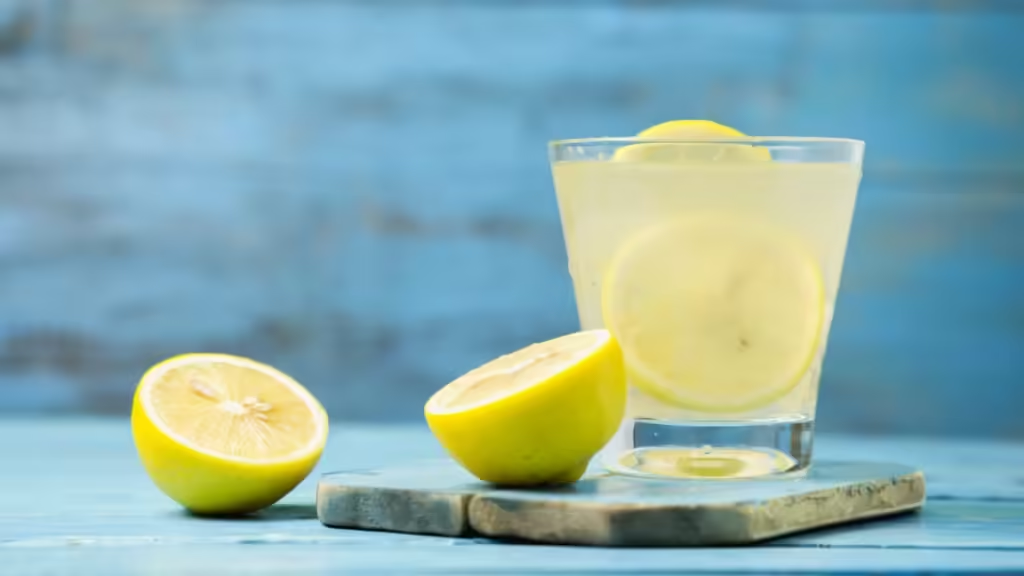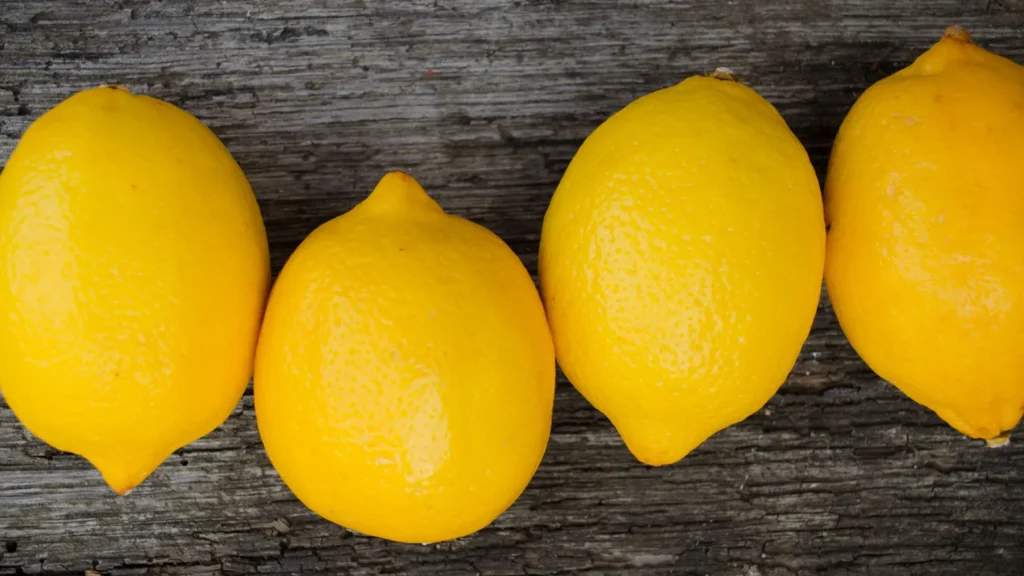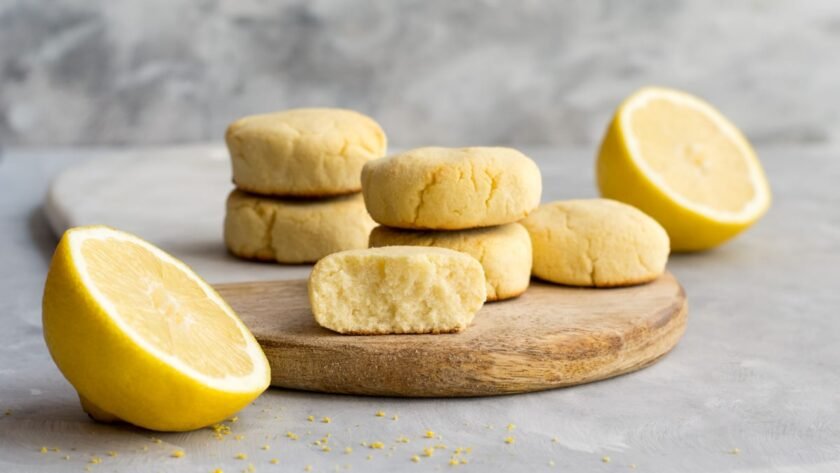Table of Contents
How does lemon juice affect pH in the body?
Although lemon juice is acidic, it has an alkalizing effect in the body, helping to balance pH levels.
The connection between lemon juice and uric acid
Lemon juice can help lower uric acid levels. The citric acid in lemon juice neutralizes uric acid crystals, potentially improving gout symptoms.
Foods with high uric acid levels
Foods high in purines can increase uric acid levels, including:
- Organ meats (liver, kidney)
- Game meats
- Turkey
- Sardines
- Seafood (herring, scallops)
- Beer
- Caffeine
What factors affect uric acid levels besides diet?
Two main factors influence uric acid levels:
- Insulin levels: High insulin can lead to high uric acid
- Ketosis: Can potentially increase uric acid levels
How does ketosis affect uric acid levels?
Ketones can compete with uric acid in the body, potentially leading to higher uric acid levels during ketosis.
Recommended approach to managing uric acid levels
Incorporate more lemon juice into your diet. It’s a simple solution that can help keep uric acid levels low, even if you consume some high-purine foods.
Discover the surprising connection between Lemons and ketosis in managing uric acid levels. This article explores how lemon juice can be a powerful ally for those on a ketogenic diet, offering insights into its alkalizing effects and its role in preventing gout. Learn why incorporating lemons into your keto lifestyle might be the key to maintaining optimal health.
So let’s dive into the details…
Lemons and Ketosis

The Alkalizing Effect of Lemon Juice
Hey guys welcome back to this topic we’re going to talk about lemon juice and your pH okay so now there’s some confusion about lemon juice since it’s citric acid it’s why is that good for uric acid what acid help an acid well in the body lemon juice turns into an alkaline substance
so it alkalizes okay and uric acid is the byproduct of certain protein called purine and purines are high in liver organ meats like liver and kidney game meats turkey sardines seafood like herring scallops beer and caffeine and other things as well but those are the main ones and all that turns in the uric acid
- Lemon juice contains citric acid
- In the body, lemon juice becomes alkaline
- Uric acid comes from purines in certain foods
High-Purine Foods
- Liver and organ meats
- Game meats
- Turkey
- Sardines
- Herring and scallops
- Beer
- Caffeine
Lemon and alkaline pH

Factors Affecting Uric Acid Levels
now it’s not just a matter of you eating those foods resulting in uric acid crystals which turns into doubt there’s really another reason these are aggravating factors and it has to do with your way that your kidneys are processing this uric acid
so there’s two other big factors that I find that if you can correct these you can still get away with eating these foods and not end up with high levels of uric acid which turns into gout which is pain in the big toe and other joints
- Kidney processing affects uric acid levels
- Two main factors influence uric acid levels
- High uric acid can lead to gout
Purines in the body
Insulin’s Role in Uric Acid Production

when the insulin is too high you have high levels of uric acid that’s why if you have insulin resistance you’re a diabetic a lot of times that comes with high uric acid and gout
and then ketosis the thing that I’m recommending everyone actually do it can actually give you too much uric acid as well so simply because the ketones compete with your gases and tend to go back and forth and the chemistry that ends up with high levels of uric acid
- High insulin levels lead to high uric acid
- Insulin resistance and diabetes often come with high uric acid
- Ketosis can also increase uric acid levels
Lemon juice and ketosis
Benefits of Lemon Juice in Managing Uric Acid

so you don’t need to know that all you need to know is that you need to start consuming more lemon juice in your diet to keep your uric acid low because your the citric acid in lemon juice neutralizes the uric acid crystals
so it actually improves gout so yes you can make sure you eliminate eliminate these from the diet that make sure you just add the lemon it’s really really simple it’ll actually help you keep the uric acid very very low so thanks for watching
- Lemon juice helps keep uric acid low
- Citric acid in lemon juice neutralizes uric acid crystals
- Adding lemon to diet can improve gout
Summary
- The citric acid in lemon juice is incredibly beneficial for lowering uric acid levels in the body. Although lemon juice has an acidic pH, once ingested, it changes to an alkaline pH.
- Uric acid is a byproduct of purines in the body. Purines come from foods like liver, organ meats, game meats, sardines, scallops, beer, and also caffeine. High insulin can cause high levels of uric acid, which can cause gout. People who suffer from insulin resistance and diabetes often suffer from gout as well.
- Ketosis also increases uric acid. This is why lemon juice is incredibly beneficial if you’re on a ketogenic diet. The citric acid in lemon juice neutralizes uric acid crystals, which keeps your uric acid levels low.
FAQ
Do lemons affect ketosis?
Lemons have minimal impact on ketosis due to their low carbohydrate content. A typical lemon contains about 5.4 grams of carbs, with 1.6 grams of fiber, resulting in only 3.8 grams of net carbs. When consumed in moderation, lemon juice is unlikely to significantly affect ketosis. In fact, lemons may have potential benefits for those on a ketogenic diet:
- Rich in vitamin C and antioxidants
- May help balance pH levels
- Can enhance flavor without adding many carbs
Does lemon juice break a keto fast?
Small amounts of lemon juice are generally not considered to break a keto fast. Here’s why:
- Lemon juice contains minimal calories and carbs
- It doesn’t typically trigger an insulin response
- Many keto practitioners allow up to 50 calories during fasting periods
How many lemons can I have on keto?
The number of lemons you can consume on a ketogenic diet depends on your daily carb limit and how you’re using them. Here’s a general guideline:
- A typical lemon contains about 3.8g net carbs
- Most keto diets limit carbs to 20-50g per day
- Using the juice of 1/2 to 1 whole lemon per day is usually safe
Does citric acid stop ketosis?
Citric acid, found naturally in lemons and other citrus fruits, does not directly stop ketosis. In fact:
- Citric acid is a weak organic acid that doesn’t significantly impact blood sugar or insulin levels
- It’s often used as a preservative in keto-friendly foods
- Some studies suggest citric acid may even have potential benefits for metabolic health
Keto fruits to avoid
While fruits can be part of a healthy diet, some are high in carbs and should be limited or avoided on a ketogenic diet. Fruits to avoid or consume very sparingly include:
- Bananas
- Grapes
- Mangoes
- Pineapples
- Apples
- Pears
- Oranges
- Dried fruits (raisins, dates, etc.)
Keto-friendly fruits
While many fruits are high in carbs, some can be enjoyed in moderation on a ketogenic diet. Keto-friendly fruits include:
- Berries (strawberries, raspberries, blackberries)
- Avocados
- Lemons and limes
- Coconut
- Olives (technically a fruit)
- Star fruit
Is watermelon keto?
Watermelon is generally not considered keto-friendly due to its higher carbohydrate content. Here’s why:
- 100g of watermelon contains about 7.6g of net carbs
- A typical serving (about 1 cup diced) has around 11g of net carbs
- This can quickly use up a significant portion of your daily carb allowance on keto
Keto-friendly fruits and vegetables
A variety of low-carb fruits and vegetables can be included in a ketogenic diet. Here’s a list of keto-friendly options:
Fruits:
- Avocados
- Berries (in moderation)
- Lemons and limes
- Coconut
Vegetables:
- Leafy greens (spinach, kale, lettuce)
- Cruciferous vegetables (broccoli, cauliflower, Brussels sprouts)
- Zucchini
- Asparagus
- Bell peppers
- Mushrooms
- Celery
Remember to always check the carb content and serving sizes to ensure they fit within your daily carb limit.
Is bottled lemon juice keto-friendly?
Bottled lemon juice can be keto-friendly, but it’s important to check the label carefully. Here’s what to consider:
- Pure bottled lemon juice without additives is generally keto-friendly
- Some brands may add sugar or preservatives, increasing the carb content
- A tablespoon of pure lemon juice typically contains about 1g of net carbs
While fresh lemon juice is always preferable, bottled lemon juice can be a convenient option for keto dieters. Just be sure to choose a brand with no added sugars or unnecessary additives.
Keto lemon water recipe
Here’s a simple and refreshing keto-friendly lemon water recipe:
- Fill a glass with 8-10 oz of cold or room temperature water
- Squeeze the juice of 1/2 to 1 whole lemon into the water
- Optional: Add a few drops of liquid stevia for sweetness
- Optional: Add a pinch of pink Himalayan salt for electrolytes
- Stir well and enjoy
Are blackberries keto?
Blackberries can be considered keto-friendly when consumed in moderation. Here’s why:
- 100g of blackberries contain about 5g of net carbs
- They’re rich in fiber, which helps slow digestion and minimize blood sugar spikes
- Blackberries are packed with antioxidants and vitamins
While blackberries are lower in carbs compared to many other fruits, it’s still important to watch portion sizes. A typical serving of about 1/2 cup (70g) contains approximately 3.5g of net carbs, which can fit into most keto diets when planned for.




